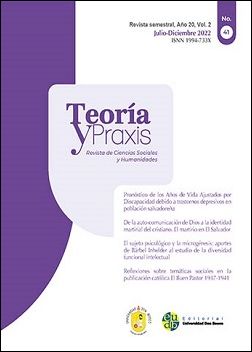The Psychological Subject and the Microgenesis: Bärbel Inhelder’s Contributions to the Study of Intellectual Functional Diversity
DOI:
https://doi.org/10.5377/typ.v1i41.15074Keywords:
Epistemology, Genetics, Development, Cognition, MicrogenesisAbstract
This essay seeks to visibilize the contributions of Swiss psychologist Bärbel Inhelder to psychology, pedagogy, education and epistemology. Her work is linked to Jean Piaget’s contribution, but she made a wide independent contribution to disciplines such as Social Work and the development of science in general. Prior to being heir to the chair of Genetic Epistemology in Geneva, her doctoral thesis on mental retardation arose on the threshold of -and as a response to- the pathologization of school contexts. Inhelder was a woman committed to science and to vindicating the abuses of childhood and adolescence that arose in the context of increasing medicalization in the 19th and 20th centuries. Her studies on the functions in the construction of knowledge led her to conceptualize the stage of formal operations and to delve into the processes and transition mechanisms between the stages of cognitive development, and, consequently, provide a new vision from microgenesis, a proposal focused on the psychological
subject which in turn provided fundamental pillars around the study of intellectual functional diversity.
Downloads
1207
Downloads
Published
How to Cite
Issue
Section
License

This work is licensed under a Creative Commons Attribution-NonCommercial 4.0 International License.
http://creativecommons.org/licenses/by-nc/4.0/




